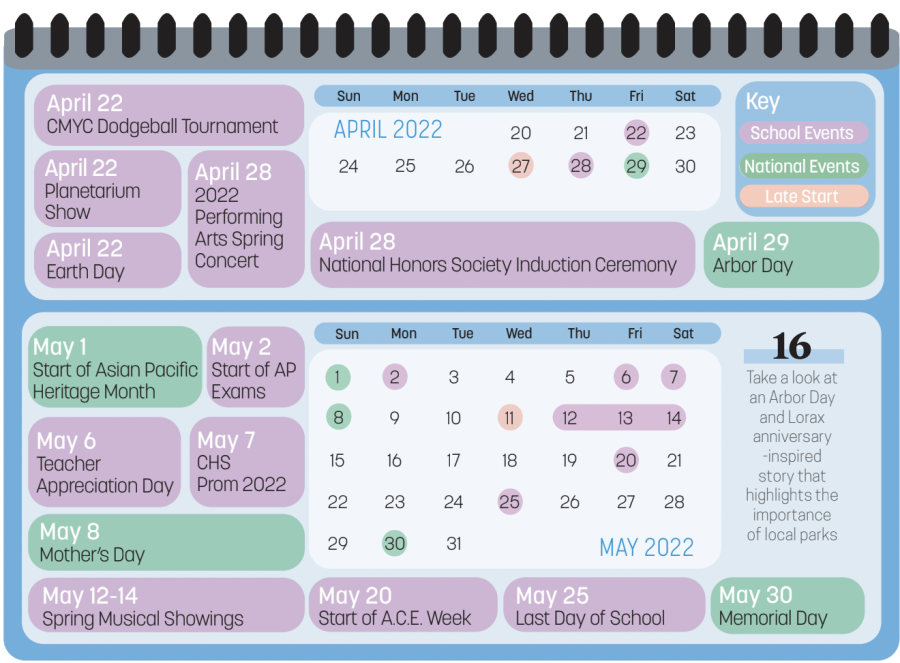Every Sunday from first grade to 10th grade, junior Courtney Glait attended her Jewish Sunday school, and every Wednesday from third grade until sixth grade, she went to Hebrew school. These were just two of the many activities Glait participated in to keep in touch with her religion and culture. She also participated in a Klezmer band at her synagogue, was in the choir at her Sunday school, read the haftarah at Yom Kippur and attended service during the major holidays.
“I know that most people who say they’re Jewish as a religion don’t even go to the services every week because people are just getting so busy and becoming more concerned with other stuff,” Glait said. “I guess a lot of people just don’t want to make the religious commitment to Judaism because it involves a lot of other activities.”
In a report conducted by the Pew Research Religion & Public Life Project, Glait proves an exception to a recent trend in Jewish Americans. According to the Oct. 1, 2013 report, an increasing number of Jewish Americans, when asked what religion they are, say they don’t have a religion, but at the same time call themselves Jewish. Today, less than 2 percent of Jewish adults in the United States say they are Jewish by religion.
The study also shows that the Jewish Americans who call themselves Jewish but do not practice the religion do so because they feel that being Jewish is more about the culture and ancestry than it is about religion.
 Glait said she understands why many Jewish Americans think Judaism is more about culture and ancestry than religion, but she does not understand how a person can call himself Jewish but affiliate himself with no religion.
Glait said she understands why many Jewish Americans think Judaism is more about culture and ancestry than religion, but she does not understand how a person can call himself Jewish but affiliate himself with no religion.
“A lot about being Jewish is just tradition, so you’re just following the traditions of the Jewish people that lasted for who knows how long. It’s just the sense of participating in service,” Glait said. “You’re in a community, and everyone is very welcoming to everyone. I just don’t understand what someone means when they call themselves Jewish, but also say they don’t have a religion. Judaism is a religion, so it’s kind of contradictory.”
On the other hand, junior Divya Udayan said she uses Hinduism as a way to connect to God. If someone were to ask her what religion she is, she would say “technically Hindu.” Udayan says she’s found over the past years that it isn’t her religion that defines her, and instead, she just simply believes in God.
Udayan said, “I would say I’m technically Hindu; however, over the past few years, I’ve kind of found that the religion isn’t quite what defines me, and I don’t feel like I need the religion so much to believe in God. I do believe in God, but the religion doesn’t really play a huge part in that. I don’t know who that God is, or it could be all of them from all religions, so the religion doesn’t really matter to me.”
 Like the Jewish Americans who only call themselves Jewish because they had direct Jewish ancestors, Udayan said she calls herself Hindu because that is the religion her parents practice, and it is the religion she has grown up with.
Like the Jewish Americans who only call themselves Jewish because they had direct Jewish ancestors, Udayan said she calls herself Hindu because that is the religion her parents practice, and it is the religion she has grown up with.
Chad Bauman, department chairperson of philosophy and religion and associate professor of religion at Butler University, said, “This pattern is somewhat similar because there are religious people who see their religion and culture as very much intimately related. The two best examples of this are Judaism and Hinduism. In both of those cases, there are people who would consider themselves atheist, and nonreligious, who might call themselves Jewish or Hindu. What they mean is that they feel Jewish or Hindu culturally or ancestrally, but they might not believe religiously in the things that some Jewish people and some Hindu people believe.”
According to the Pew Research Center, most of the Jewish Americans who say they don’t have a religion say so because they lose touch with their religion, but Glait said it hasn’t been hard for her to maintain a connection with her religion.
Glait said her parents played a big role in how she perceives her religion today. Because her parents emphasized practicing the religious and cultural aspects of the religion, she still makes sure to go to temple at least on the major holidays and to partake in the Jewish holidays.
Bauman said, “I think one’s childhood is a very important part in framing the child’s view on religion because most people end up following the lead of their parents on religious matters, particularly until they are 20 or 30 years old, and often college is a bit of a transition time for that.”
She said, “The fact that I was raised going to Sunday school, lighting candles for Hanukkah, not eating lemon bread during Passover and becoming Bat Mitzvah helps me keep in touch with my religion. I think, again, it just depends on how you were raised. I have a strong influence from my parents.”
For Udayan, when she was growing up in Michigan, she had a small temple near her house, so she went to it frequently, and she was also part of a religious group. Even today, she is part of a religious group where she continues to find ways to connect to God.
“My parents are Hindu, and I just always saw that they just prayed, and that’s kind of how I’ve just developed my view of just praying to God. My childhood and growing up with the religious group I’m a part of has definitely played a huge role, too,” Udayan said.
Although the Pew Research Center suggests that moving to the United States makes people lose touch with their religion, both Glait and Udayan said moving to the United States has not hindered them from trying to maintain a connection with their religion.
“Some research actually suggests that when people migrate to the United States, they actually become more religious because they see their religion as one way of remaining tied to their homeland. Everyone basically has their own definition of what religion is,” Bauman said. “I think making the distinction between who’s sort of the real or true religious person is up to the person themselves. From an external scholarly perspective, I have no basis on which to make. It’s just a distinction that religious people can make if they want.”
































![British royalty are American celebrities [opinion]](https://hilite.org/wp-content/uploads/2024/03/Screenshot-2024-03-24-1.44.57-PM.png)




















![Review: Quiet on Set: The Dark Side of Kids TV is the long awaited exposé of pedophilia within the children’s entertainment industry [MUSE]](https://hilite.org/wp-content/uploads/2024/04/unnamed.jpg)
![Review: “The Iron Claw” cannot get enough praise [MUSE]](https://hilite.org/wp-content/uploads/2024/04/unnamed.png)
![Review: “The Bear” sets an unbelievably high bar for future comedy shows [MUSE]](https://hilite.org/wp-content/uploads/2024/03/unnamed.png)
![Review: “Mysterious Lotus Casebook” is an amazing historical Chinese drama [MUSE]](https://hilite.org/wp-content/uploads/2024/03/0.webp)
![Thea Bendaly on her Instagram-run crochet shop [Biz Buzz]](https://hilite.org/wp-content/uploads/2024/03/IMG_0165-1200x838.jpg)
![Review in Print: Maripaz Villar brings a delightfully unique style to the world of WEBTOON [MUSE]](https://hilite.org/wp-content/uploads/2023/12/maripazcover-1200x960.jpg)
![Review: “The Sword of Kaigen” is a masterpiece [MUSE]](https://hilite.org/wp-content/uploads/2023/11/Screenshot-2023-11-26-201051.png)
![Review: Gateron Oil Kings, great linear switches, okay price [MUSE]](https://hilite.org/wp-content/uploads/2023/11/Screenshot-2023-11-26-200553.png)
![Review: “A Haunting in Venice” is a significant improvement from other Agatha Christie adaptations [MUSE]](https://hilite.org/wp-content/uploads/2023/11/e7ee2938a6d422669771bce6d8088521.jpg)
![Review: A Thanksgiving story from elementary school, still just as interesting [MUSE]](https://hilite.org/wp-content/uploads/2023/11/Screenshot-2023-11-26-195514-987x1200.png)
![Review: When I Fly Towards You, cute, uplifting youth drama [MUSE]](https://hilite.org/wp-content/uploads/2023/09/When-I-Fly-Towards-You-Chinese-drama.png)
![Postcards from Muse: Hawaii Travel Diary [MUSE]](https://hilite.org/wp-content/uploads/2023/09/My-project-1-1200x1200.jpg)
![Review: Ladybug & Cat Noir: The Movie, departure from original show [MUSE]](https://hilite.org/wp-content/uploads/2023/09/Ladybug__Cat_Noir_-_The_Movie_poster.jpg)
![Review in Print: Hidden Love is the cute, uplifting drama everyone needs [MUSE]](https://hilite.org/wp-content/uploads/2023/09/hiddenlovecover-e1693597208225-1030x1200.png)
![Review in Print: Heartstopper is the heartwarming queer romance we all need [MUSE]](https://hilite.org/wp-content/uploads/2023/08/museheartstoppercover-1200x654.png)























![Review: Ladybug & Cat Noir: The Movie, departure from original show [MUSE]](https://hilite.org/wp-content/uploads/2023/09/Ladybug__Cat_Noir_-_The_Movie_poster-221x300.jpg)

![Review: Next in Fashion season two survives changes, becomes a valuable pop culture artifact [MUSE]](https://hilite.org/wp-content/uploads/2023/03/Screen-Shot-2023-03-09-at-11.05.05-AM-300x214.png)
![Review: Is The Stormlight Archive worth it? [MUSE]](https://hilite.org/wp-content/uploads/2023/10/unnamed-1-184x300.png)



